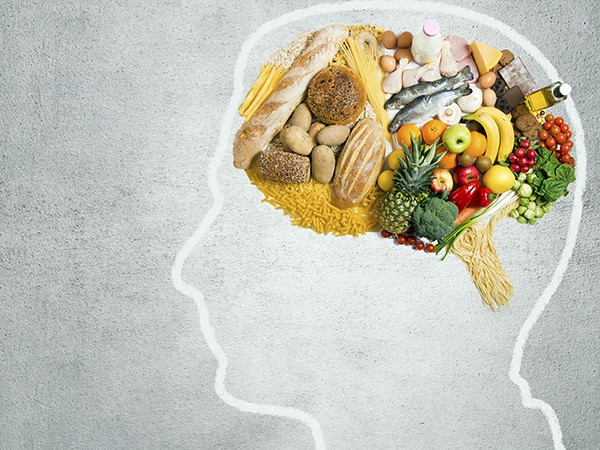The brain controls every aspect of our lives – thoughts, movements, feelings. To do this, he constantly needs the energy we get from food. That is why it is so important to watch what you eat: remember, your choice has a direct and long-term effect on the most powerful organ of the body – the brain. Experts told us about how the stomach and brain are connected, and what food our brain needs.
Kyiv. Ukraine. Ukraine Gate – May 8, 2021 – Lifestyle
Millions of nerves and neurons pass between the intestine and the brain. There are many relationships between the food we eat and the bacteria that live in the gut that affect our health and even our mood. By adjusting the work of bacteria in the intestine, you can improve brain function.
The hippocampus, the area of the brain responsible for memory, learning, and mental health, becomes smaller in those who abuse junk food.
Experts say that if you exclude harmful carbohydrates from the diet, it will have a positive effect on IQ and overall health, as well as reduce the risk of depression.
Products that worsen the condition of the brain
white flour;
refined sugar;
fast food containing trans fats and fats of animal origin.
A lot does not mean good
Many people are convinced that starvation can kill them, so without thinking, they instinctively try to suppress hunger as soon as possible. However, short-term starvation does not harm, but, on the contrary, strengthens the vital forces of a man much more than overeating. The brain loves ketones, which arise as a result of fat metabolism – increases efficiency, speed of reactions, and creativity.
Products that are especially “liked” by the brain
Omega-3 fatty acids
Foods high in omega-3 polyunsaturated fatty acids (PUFAs) slow down brain aging and significantly reduce the risk of senile dementia, including Alzheimer’s disease. In addition, taking omega-3 helps fight depression.
Products richest in omega-3 acids:
fatty fish: salmon, herring, trout, mackerel, etc .;
flaxseed, rapeseed, hemp, and walnut oil;
flax and chia seeds;
nuts;
algae, zoster.
Lecithin
Lecithin is one of the main sources of nutrition for the nervous system. The peripheral nervous system consists of 17% lecithin and the brain 30%. Lecithin deficiency is accompanied by dysfunction of the nervous, cardiovascular and other systems. Manifestations of lecithin deficiency in humans are quite common.
To make up for its deficiency, it is important to include in the diet foods rich in lecithin – eggs, nuts, and legumes.
Tryptophan
Tryptophan is an amino acid that can increase the production of serotonin in the brain, a hormone responsible for mood, sleep quality, and pain perception. The substance has a wide range of positive effects on the body. It is used to combat insomnia and depression.
Amino acid stores are found in bananas, beans, cheese, dairy products, dates, eggs, fish, meat, nuts, peanuts, and whole grains.
White
An important protein for the brain is isoleucine: it acts as a stimulant of the immune system, provides additional energy, and promotes the formation of hemoglobin. Isoleucine increases energy, increases endurance, and helps to restore muscle tissue.
We look for it in fish, nuts, and meat.
B vitamins
B vitamins are vital substances that directly affect the nervous system. To eliminate vitamin deficiencies, follow your diet.
Try to eat a variety of foods and include meat, peas, buckwheat, mushrooms, eggs, and oatmeal in your diet.
Microbiome
The microbiome consists of a huge number of bacteria that are in a healthy gut. These intestinal bacteria are important for the brain. They protect the intestinal mucosa and provide a strong barrier against toxins and “bad” bacteria, as well as activate the nerve pathways that run directly between the intestine and the brain. Many diseases of the nervous system, autism, depression, schizophrenia, Parkinson’s disease, Alzheimer’s disease may be associated with an imbalance of some intestinal bacteria.
To keep the intestinal microflora healthy, you should pay attention to the method of the Austrian doctor Franz Mayer and follow the general rules of nutrition according to Mayer:
maintain a healthy acid-base balance. To do this, combine in your diet products that acidify (cereals, all products of animal origin) with those that create an alkaline environment (vegetables). Add vegetables to every meal – tomatoes, beets, peppers, cauliflower, pumpkin, and others. Prefer baked and steamed foods;
eat slowly;
chew food well with enough saliva;
start eating only in a relaxed, calm state and in a good mood;
finish eating when you feel full, not overeating;
drink plenty of fluids to avoid dehydration and sharp fluctuations in electrolyte levels.
Follow the simple rules of nutrition according to Mayer, and then any feast will be a real ritual of healthy self-care. As a result of therapy, you will restore intestinal function, which will improve brain function. Don’t limit yourself to proper nutrition: exercise outdoors, watch your sleep, stop being nervous about small things, limit your work on the monitor.
Breathe the fresh air, enjoy time alone, add healthy food to the diet and maintain inner harmony, then the brain will remain energetic and productive for as long as possible.
Read also: What Happens to Your Body and Brain When Traveling by Plane
Source: Ukrgat







